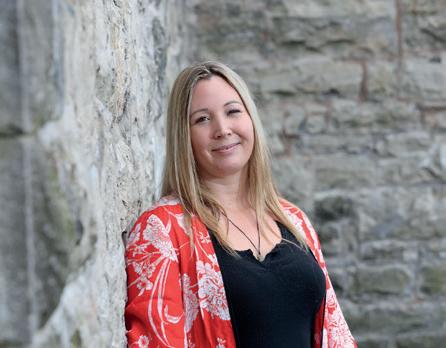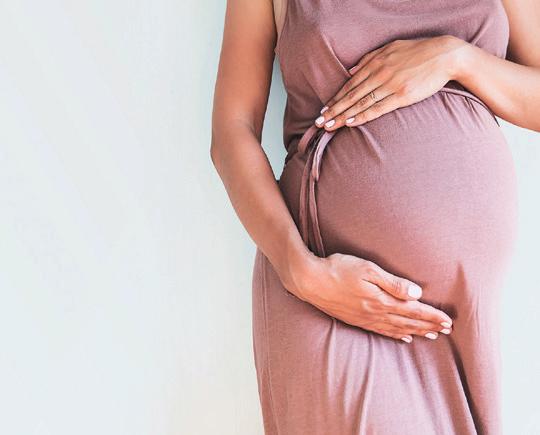
4 minute read
PUCKER UP!
HEALTH & BEAUTY
What would we do without our lips? We’d find it very di fficult to eat, speak or smile! And with Valentine’s Day just around the corner, we need them in tip-top kissing condition too…
Advertisement
PUCKER UP!

It’s vital to look after your lips
Most of us probably don’t think much about our lips – but they’re important. Not only do they help us to consume food and articulate words, they also play a big part in our relationship building. Whether we want to smile and pout to attract a partner or put their multiple nerve endings to good use as a tactile sensory organ (ie, smooching!), it’s worth keeping your lips in good nick.
The lips’ skin is thinner than typical face skin, and it also has no hair or sweat glands so it lacks the usual protective layer of sweat and body oils which keep the skin smooth, inhibit pathogens and regulate warmth. That’s why the lips dry out faster and become chapped more easily. Daily lip balm use keeps the skin from getting sore and in the colder months a more medicated variety offers maximum protection. That’s important in the summer too, because the sun’s rays can also be extremely harmful to this delicate skin. Fill ’em in? These days people with a thinner, less plump pucker often turn to aesthetic enhancements to give their lips a boost. Early pioneers suffered thanks to the original wave of unpleasant permanent silicone fillers, but today a range of gentle dermal lip fillers are available. They are not permanent and last between six and 18 months. Most dermal fillers used in the UK contain a ‘The sun’s rays can be harmful to delicate lips’



natural substance called hyaluronic acid – a product created by your body. An anaesthetic cream is used to numb your skin, and then injections are given around the area, followed by massage. It may feel uncomfortable but should not be painful. The procedure is relatively risk-free, as long as a reputable clinician is involved, but even if something were to go wrong there’s an antidote.
Colour up Many of us like to add a splash of colour to our lips at the very least, but despite brand claims most lipsticks fail to last a full day of talking, eating and drinking. For some people the chore of topping up is too much and a more permanent solution is sought in the form of lip tattooing. This is painful and, despite the name, it’s not permanent either (most treatments last no more than three years), so be sure it’s what you want before taking the plunge.
Bella Bay Wellbeing provides a space to relax and escape the stresses of everyday life. Treatments include signature massages, which work with the senses to relax the mind and body; Secret Escape treatments, such as Cowrie Shell and Hawaiian Massage; and Chinese medicine such as acupuncture, which treats chronic and acute conditions including back pain, fatigue, digestive complaints, skin conditions and stress. Owner Ffi on Davies has been involved in the complementary therapy industry for more than 10 years. She holds a BSc (Hons) in acupuncture and a professional graduate certifi cate in education (PGCE) that enables her to teach therapeutic subjects. Bella Bay Wellbeing is located at the newly
developed Y Shed community hub at Meliden, near Prestatyn. For more information or to book a treatment contact Ffi on on 07925 680818 or search ‘Bella Bay Wellbeing’ on Facebook. Bella Bay therapy room Ffi on Davies


MYTH BUSTER

New person plans for the new year? We fact-check some conception myths
Your weight can affect your fertility This is true: women with very low or high body mass index (BMI) may find it harder to conceive and are at more risk of pregnancy complications. If you’re trying to get pregnant, it is helpful to keep your BMI between 18.5 and 24.9 (divide your weight in kilos by your height in metres squared).
It’s very difficult to conceive after 35 It’s more difficult, but by no means impossible. A large study found the chance of conceiving on your most fertile day aged 27 to -34 was just under 40 per cent, falling to 30 per cent from 35 to 39. Another study found 44 per cent of women aged 40 conceived within a year of trying. Maintain healthy habits (diet, exercise, mental health) and follow medical advice to improve your chances.

Eating honey can help you conceive This has an element of truth! Honey contains amino acids that are helpful for ovarian function and can be beneficial to the reproductive system.

